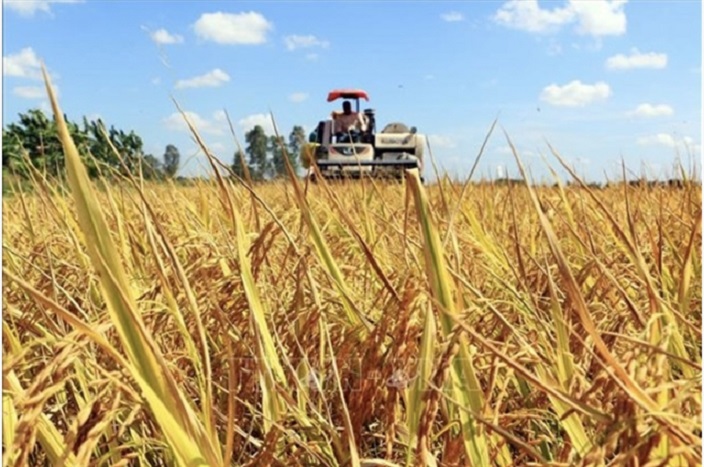
More than one million people in the Mekong (Mekong) Delta will be trained to enable them to participate in a program for growing high-quality rice in the region.
The country’s rice granary is undertaking a Ministry of Agriculture and Rural Development (MARD) project to cultivate one million hectares of high-quality, low-emission rice by 2030 to achieve green growth in the delta.
It will train local agricultural officials, the managers of 620 co-operatives and co-operative groups and participating farmers, including more than 207,000 in 2024-25.
Farmers will be trained in growing rice sustainably and reducing greenhouse gas emissions caused by farming.
Speaking at a seminar held in Cần Thơ on Tuesday (April 2), Lê Đức Thịnh, head of MARD’s co-operative economy and rural development department, said 12 training-for-trainers courses would be held this year.
The delta’s 12 provinces and Cần Thơ City would organise training courses for co-operatives and co-operative groups participating in the project, he said.
Deputy Minister of Agriculture and Rural Development Trần Thanh Nam said co-operative members and agricultural extension officers, especially at the grassroots level, and community-based agricultural extension officers, would be the main trainees.
He called on local authorities to persuade farmers that participating in the project would bring them benefits such as reducing costs and carbon credits.
In 2024-25 the programme will focus on improving the quality of rice grown on more than 182,000ha under the Việt Nam – Sustainable Agriculture Transformation (VnSAT) project.
It would be expanded, Nam said.
The ministry has chosen five rice models to trial processes to reduce greenhouse gas emissions and use the measurement, reporting and verification (MRV) method in Trà Vinh, Sóc Trăng, Kiên Giang and Đồng Tháp provinces and Cần Thơ in 2024-25.
They will trial the models over three rice crops until winter – spring 2024-25, and the ministry will approve the emission reduction coefficient plan based on their MRV results. –— VNS